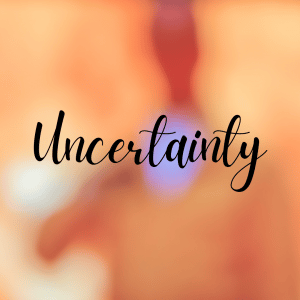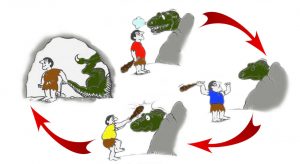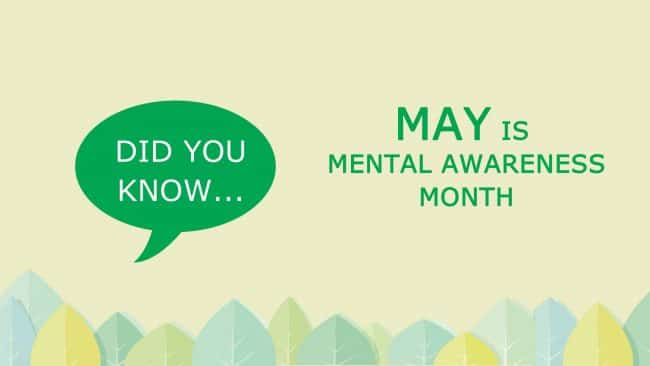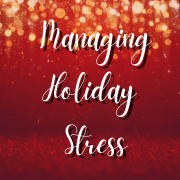Why is Uncertainty Stressful?
 Why is uncertainty stressful? Uncertainty is stressful because of the fact that it is the unknown. The only certainty is that life is uncertain! That’s probably a phrase that you have heard more than once, specially recently. We all know it, but do we truly believe it? Do we strive to control the uncontrollable and how can we feel in control in uncertain times?
Why is uncertainty stressful? Uncertainty is stressful because of the fact that it is the unknown. The only certainty is that life is uncertain! That’s probably a phrase that you have heard more than once, specially recently. We all know it, but do we truly believe it? Do we strive to control the uncontrollable and how can we feel in control in uncertain times?
Firstly a Note on Stress
Definition of stress
Stress is the adverse reaction people have to excessive pressure or other types of demands placed on them. It arises when they perceive that they are unable to cope with those demands. It is not a disease, but if stress is intense and goes on for some time, it can lead to mental or physical ill health, EG; depression, nervous breakdown, heart disease or other physical ailments.*
What is Pressure?
Pressure is often used interchangeably with stress but actually the two words have quite different meanings. Pressure is in fact a positive aspect of life and work for most people. Many of us need to have standards, targets and deadlines to push us towards good performance. Pressure is what most people feel as the need to perform – and everyone has an optimum level of pressure that brings about their best performance. It can be seen as pressure when you feel that it is achievable. You might have to work hard, take some risks, challenge yourself, change or accept new things – but it is manageable. You feel a level of control over the situation.
Of course what feels like pressure for one person can feel like stress to another. Too much and you can burn out, not enough and you can rust out!
In other words, pressure is good, stress is bad!
Our brains give us fits when facing uncertainty because they’re wired to react to it with fear because it is unknown and uncontrollable. When this happens our bodies go into the stress response. We need engage the rational brain to reduce stress and convince ourselves that uncertainty is normal and manageable. Our stress response is hard wired into our bodies.
Primitive Man’s Response to Stress
- The front of the brain receives stimulus from eyes, ears etc.- aware of danger.
- The hypothalamus of the brain activates.
- The pituitary gland releases hormones.
- The involuntary nervous system sends signals via nerves to various parts of the body.
- This causes the adrenal glands to release hormones; adrenalin, nor-adrenalin and cortisones.
These lead to the other changes:
- Mentally alert – senses activated.
- Breathing rate speeds up –nostrils and air passages in lungs open wider to get air in more quickly.
- Heartbeat speeds up and blood pressure rises.
- Liver releases sugar, cholesterol and fatty acids into the blood to supply quick energy to the muscles.
- Sweating it increases to help cool if the body.
- Blood clotting ability increases, preparing for possible injury.
- Muscles of bladder and bowel openings contract and non-lifesaving activity of body systems ceases temporarily.
- Blood is diverted to the muscles and muscle fibres tense ready for action.
- Immunity responses decrease. This is useful in short term to allow a massive response by body. It is harmful over a long period.
The “fight or flight” response is easily recognized in a fear provoking situation. This is how the body goes into lifesaving mode. Very appropriate for primitive man, but what about humans today, living in this always on culture and the uncertainty of the current pandemic?
This blog has been all about setting the scene and understanding why uncertainty is so stressful. See my other blogs about uncertainty. Just click the links below.
- Why is Uncertainty Stressful – Uncertainty part 1
- Reduce Stress – Uncertainty part 2
- Mind-set – Uncertainty part 3
- Manage Ambiguity – uncertainty part 4
*Health and safety executive 2001












